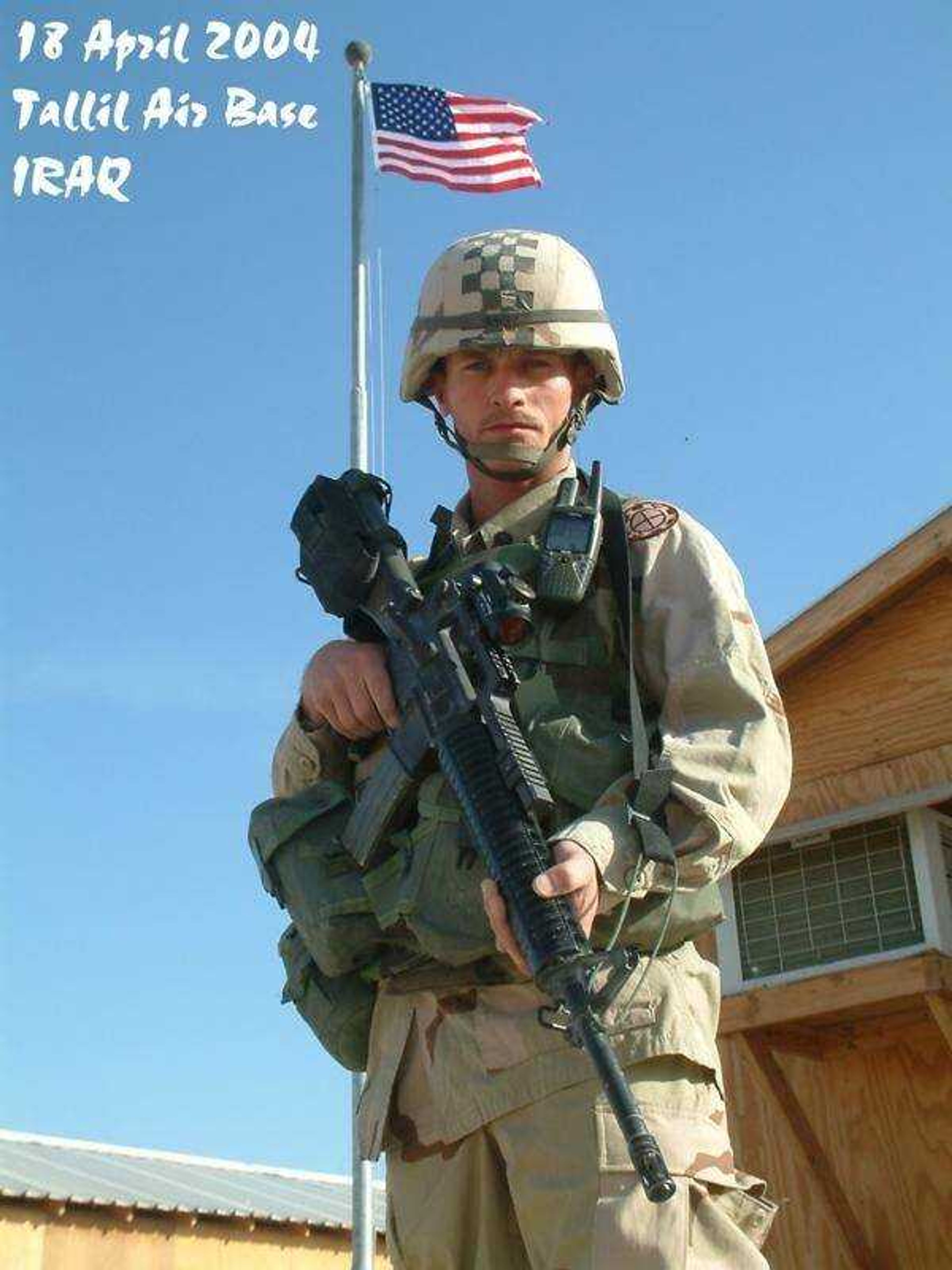Student veteran Junior Swift still feels presence of enemy fire back in the United States
While driving along the interstate, Junior Swift begins swerving his vehicle from side to side to avoid bombs and missiles. As an overpass appears, he continues to veer in order to miss the enemies' gunshots. He gazes into his rearview mirror, sees no one and suddenly realizes -- he is back home in Cape Girardeau.
While driving along the interstate, Junior Swift begins swerving his vehicle from side to side to avoid bombs and missiles. As an overpass appears, he continues to veer in order to miss the enemies' gunshots. He gazes into his rearview mirror, sees no one and suddenly realizes -- he is back home in Cape Girardeau.
Swift, an industrial and engineering technology major at Southeast Missouri State University, served 15 years in the military, from 1989 to 2005. Throughout his military career he was a medical specialist, military police officer, intelligence analyst and combat engineer.
U.S. soldier Swift served in Operation Iraqi Freedom for 18 months, beginning in December 2003. He went through 45 days of conditional training in Kansas before entering Iraq.
Swift experienced a major culture shock moving from America to the Middle East.
"The culture itself was very underdeveloped compared to what we have," Swift said. "Some of the people didn't have homes. They lived in tents and moved around a lot."
Another large adjustment was getting used to the weather extremes. Swift said it was extremely hot. When it did rain, it came down for one or two days before a dry spell that stretched for months.
As a combat engineer, Swift traveled to all parts of Iraq. His job was to check statuses of troops, supplies and morale. His duties also included escorting Col. John Akers. Swift and six other soldiers were assigned to protect the Colonel any time the troops went out on a mission. Traveling through Iraq, Swift traveled through areas where little battle took place. These areas were known as green zones. There was one heavily-guarded green zone in central Baghdad in Iraq.
"Then there were some places we would be in where we're constantly fighting someone," Swift said. "Every day was a different day, you never knew what to expect when you left."
Throughout the 18 months in Iraq, Swift called home twice a week to speak with his two children. When he could, he also tried to stay in contact with friends.
"You've got your family and friends who [are] like your lifeline," Swift said. "That's just who you'd talk to, to get you through the day whenever having rough times."
While in Iraq, Swift was hit by a car, tearing his right meniscus. The knee injury resulted in pain, swelling and stiffness.
"I've been battling with my leg ever since I came home, there's nothing they can do to fix it," Swift said.
One of the toughest transitions Swift faced after returning from Iraq was driving. In Iraq, Swift was constantly watching for roadside bombs and expecting somebody to shoot at him. He would swerve underneath bridges avoiding these blasts.
"There was no particular form of driving except for defensive driving while over there," Swift said. "Once I was home, there were some things that took some time getting used to again."






